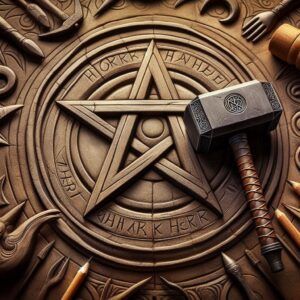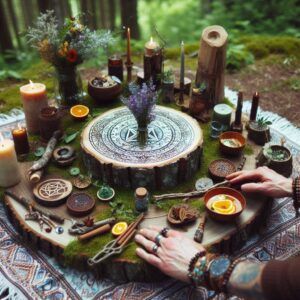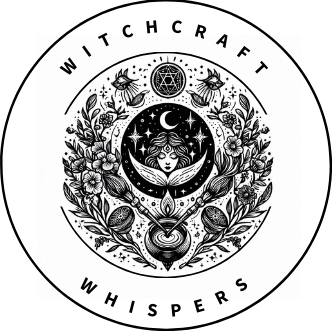Wicca has an intriguing history, weaving together both old traditions and more recent ideas. A lot of folks think it’s been around forever, but the actual story is a bit more layered. I’m going to break down where Wicca really comes from, why people sometimes call it ancient, and how it’s changed into what we see today.

The Real Origins of Wicca
When people talk about Wicca, they often imagine a religion that’s been practiced for thousands of years, straight from the times when druids and wise women roamed the forests. The reality is a little different. Wicca, as we know it, first showed up in England during the 20th century. Its roots are a mix of older pagan beliefs, ceremonial magic, and a fair bit of creativity.
A retired British civil servant named Gerald Gardner played a huge role in launching Wicca into public view around the 1940s and 50s. Gardner published several books, claiming Wicca was the survival of an ancient, secret witch cult. He shared rituals, beliefs, and practices, but most modern scholars agree that a lot of what Gardner presented came from the magical and occult circles of his era, plus his own spin.
Some parts of Wicca draw inspiration from practices, symbols, and folklore that go back much further. Elements like the celebration of seasonal festivals and the honoring of nature definitely have ancient roots. Even the word “wicca” itself comes from an Old English word meaning “witch,” but what Gardner and others built was new, just made from older building blocks.
Wicca and Ancient Religions: Which Came First?
Is Wicca the oldest religion in the world? That’s a common question. The short answer: Wicca isn’t the world’s oldest religion. Its framework was put together in the past century, so compared to religions like Hinduism, Judaism, or even prehistoric animist practices, Wicca is actually pretty new.
Still, parts of Wiccan philosophy and ritual celebrate ideas and cycles that people all over the world have honored since ancient times, like the changing seasons, the cycles of the moon, and respect for the natural world. Those ideas aren’t unique to Wicca, but they help connect modern Wiccans to the distant past, making their spiritual adventure feel timeless even if the structure is recent.
Plus, the rituals and myths Wicca uses often resemble older traditions, which is part of why some folks assume Wicca is ancient. This connection to the cycles of life and nature gives Wiccans a sense of shared human experience through the ages, even though their organized path is modern.
What Makes Wicca Different from Other Pagan Paths?
Paganism is a broad umbrella with all sorts of spiritual traditions. Wicca is just one flavor within modern paganism. What makes Wicca stand out is its focus on a Goddess and a God (sometimes called the Lord and Lady), the use of ceremonial tools, and a cycle of celebrations called the Wheel of the Year. There’s also a strong emphasis on personal experience, and most Wiccans practice in small groups or even alone, called “solitary practice.”
Does Wicca Have Sin?
The idea of “sin” doesn’t show up in most forms of paganism, including Wicca, the way it does in many Christian traditions. Instead, Wiccans follow the Wiccan Rede, which goes: “An it harm none, do what you will.” That means personal responsibility is really important in Wicca. Instead of a list of sins, Wiccans focus on making choices that avoid causing harm to themselves or others. There’s also a belief in something called the “Threefold Law,” which suggests that whatever energy or intention you send out comes back to you three times over. So, while you won’t find a concept of sin like in the big monotheistic religions, ethical living and self-awareness are big deals in Wicca.
How Wicca Has Changed Over Time
Wicca didn’t just stay frozen in the 1950s. As more people stumbled upon it, Wicca started to grow and branch out. New traditions formed with new rituals and ideas, and practitioners began to shape the religion to fit their own needs and values. Some of the most well-known forms are Gardnerian Wicca, Alexandrian Wicca, and Dianic Wicca, each with its own focus.
It’s also become way more open. Early on, Wicca was very secretive; rituals were private, and joining involved a lot of mysterious ceremonies. These days, you’ll find plenty of books, websites, and online communities for people interested in Wicca. Solitary Wicca, where people practice by themselves instead of with a coven, is super common now. Wicca has spread well past its British beginnings, popping up in North America, Australia, Europe, and beyond, with each new place mixing in some variety.
Many modern Wiccans also work to reconnect with local land and history. Community events, group rituals in parks, and ecofriendly projects are just a few ways Wiccans step up and help the world around them. The all-in-one energy of Wicca lets each person shape their path to fit both world traditions and what feels natural to them.
Modern Wicca: What Practitioners Do Today
 The heart of modern Wicca beats around nature-based spirituality. Rituals often line up with the phases of the moon or the eight seasonal sabbats (like Samhain, Beltane, and Yule). Wiccans gather in groups called covens or practice solo, building altars, casting circles, and working with simple magical tools like the athame (ritual knife), pentacle, and chalice.
The heart of modern Wicca beats around nature-based spirituality. Rituals often line up with the phases of the moon or the eight seasonal sabbats (like Samhain, Beltane, and Yule). Wiccans gather in groups called covens or practice solo, building altars, casting circles, and working with simple magical tools like the athame (ritual knife), pentacle, and chalice.
Spellwork in Wicca isn’t about fantasy magic or controlling reality; it’s more about setting intentions, focusing the mind, and marking important life moments. Many Wiccans also draw from older folklore, blending family traditions or local customs into their spiritual practice. You’ll often see an openness to adapting rituals, mixing old and new in ways that feel personal and meaningful.
- Seasonal Festivals: Celebrations for solstices, equinoxes, and crossquarter days connect practitioners to the rhythm of nature.
- Magic and Ritual: Meditation, visualization, and working with herbs and symbols allow Wiccans to connect with their inner selves and the divine.
- Community and Solitude: Some prefer the energy of a group, while others like to keep things private.
Some Wiccans even create personalized rituals or artwork and write poetry to connect with the deities they honor. The all-in-one nature of Wicca allows it to mold itself to any lifestyle, urban or rural.
Challenges and Misconceptions Around Wicca
Wicca’s history is dense with misunderstandings. For years, the words “witch” and “pagan” set off alarms for mainstream society. Some religious groups still see Wicca as strange or even dangerous, even though its main tenets encourage kindness, respect, and peaceful living.
Another common hiccup is the idea that all Wiccans believe or do the same things. In reality, Wiccan practice is very individual. What counts as “real” Wicca to one person might seem totally different to someone else. This flexible nature is one of its strengths, letting each person build a spiritual path that feels right for them.
Reclaiming Witchcraft
The rise of Wicca mirrors a wider trend to reclaim witchcraft as something positive. Where “witches” were once blamed for bad luck, illness, or strange happenings, today’s Wiccans focus on healing, mindfulness, and respect for both people and the natural world. This reimagining of witchcraft helps create a more openminded society and offers support for those looking for alternatives to mainstream religion.
Frequently Asked Questions: Wicca, Witchcraft, and Paganism
What are the origins of Wicca?
Wicca comes from 20th-century England and was shaped mainly by Gerald Gardner. He pulled together older folk traditions, ceremonial magic, and ideas from other new religious movements to create Wicca as we know it today.
Is Wicca the oldest religion?
No, Wicca is not the oldest religion. Although it draws on really old themes and symbols, Wicca was formed much more recently than religions like Hinduism or Judaism.
Does Wicca have sin?
The idea of “sin” usually doesn’t apply in pagan traditions like Wicca. Instead, the focus is on avoiding harm and living responsibly, guided by ethics such as the Wiccan Rede (“An it harm none, do what you will”) and the belief in personal accountability for one’s actions.
How Wicca Fits into Today’s World
Wicca has carved out a space not just as a religion but also as a community for creative, independent thinkers who want to connect with nature and each other. It’s also become a way for people to reclaim lost traditions, honor the environment, and build rituals that mark life’s changes in their own unique style.
For those just starting to check out Wicca—or anyone curious about nature-based spirituality—the flexibility and do-it-yourself vibe can be pretty appealing. Resources like books, online forums, and local groups are out there to help new practitioners learn and grow safely.
Wrapping up, Wicca’s story is a mix of creativity, respect for nature, and the search for meaning. While it isn’t the most ancient of faiths in its current form, it taps into age-old ideas about how we fit into the larger web of life. Whether your interest is historical, spiritual, or practical, Wicca offers a welcoming, open path that continues to shape and be shaped by everyone who walks it.
